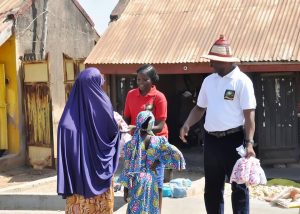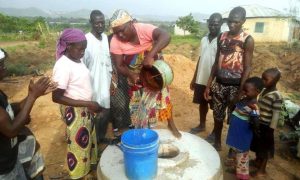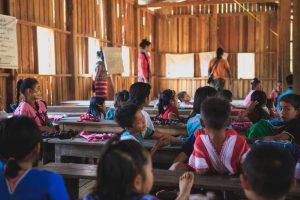OWA works independently and collaboratively with several organisations and agencies to support people in disaster and humanitarian crisis. Our humanitarian interventions are fast-paced mobilising human, material and financial resources from the outset of crisis to improve the wholistic wellbeing of people in emergencies. Below are the sub- thematic areas that we have previously worked on and still working on.
Cash-based Interventions
At One World Aid, we believe that cash-based interventions is not only a cashpoint; it is a lifeline that gives refugees and displaced persons the power of choice.
Our cash-based interventions aim to protect people in emergencies from engaging in criminal activities such as forced marriages, sex trafficking, child labour, terrorism among others based on lack of cash.
Cash-based interventions also help displaced persons in contributing economically to their host communities, by engaging in buying and selling and ensuring peaceful co-existence between refugees and displaced persons and their host communities.
OWA provides cash and vouchers for people in emergencies to help them meet their daily needs and give them a ray of hope even in their situation.

WASH (Water, Sanitation,Hygiene)
The provision of water, hygiene, and sanitation for displaced communities helps improve their health and ward off illnesses. Without proper sanitation and lack of water supplies, diseases can spread and epidemic can erupt.
Lack of WASH services also hinder displaced persons and families from achieving basic human rights of cooking, household cleaning, personal hygiene and sanitation. Thus, providing WASH services help give displaced persons dignified living conditions.
One World Aid provides potable water through provision of bore holes, hygiene education and promotion, and toilets for displaced communities across Nigeria.
Likewise, we provide sanitation packages particularly, for women and girls such as pads, baby wipes, bathing soaps, toothbrushes, and other items that promote hygiene and improved wellbeing.

Education in Emergency
Education is a fundamental human right for everyone enschrined in the 1989 Convention on the Rights of the Child and 1951 Refugee Convention.
Education gives a level playing field to all. Education in emergencies is however, more important as it empowers and provides displaced persons the skills, and capacities needed to live an independent, desired, andfulfilled and life.
Quality education also provides safety from sexual exploitation and child labour, healing from trauma as displacement disrupts education.
OWA provides holistic education focusing on the psychosocial, cognitive, and emotional development for displaced children and youths from the outset of emergencies.
She provides education for school aged children (between 4 and 18) and youths(between 15 and 24 years).
Vocational and technical training and education are also provided for young men and women. Tertiary education is sometimes provided depending on the context of the country.
OWA also donates school materials to people in emergencies.
